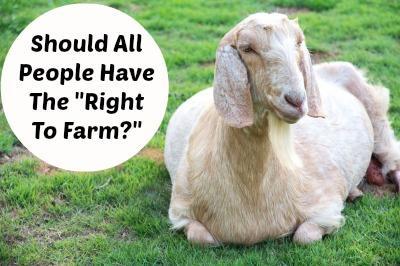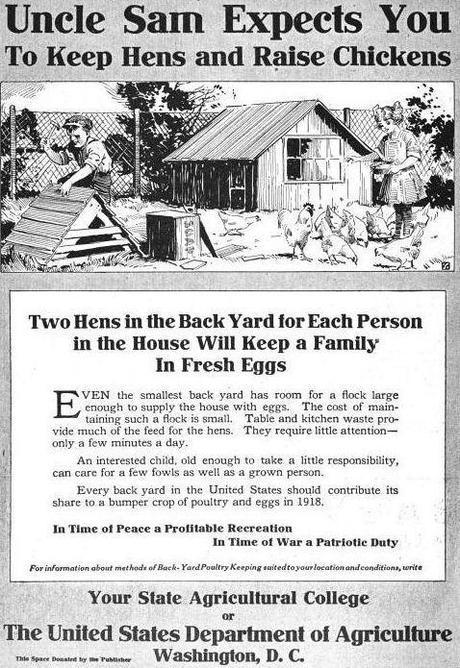 Should all of the residents of Michigan have the “right to farm?” That is the hot question around town this week as it became known that the Michigan Department of Agriculture and Rural Development made significant changes to the state’s “Right To Farm” legislation.
Should all of the residents of Michigan have the “right to farm?” That is the hot question around town this week as it became known that the Michigan Department of Agriculture and Rural Development made significant changes to the state’s “Right To Farm” legislation.
Here’s how it breaks down (skipping many details and hitting the highlights):
30(ish) years ago people began leaving the cities for a quieter rural life. After making the move they realized that, with the quiet of country living comes dust and mud, smells and noises from the neighboring farms. The newcomers would then file lawsuits against the long-standing farms to try to force them to be perfectly clean and silent which just wasn’t possible.
The “Right To Farm” laws were born. They said that people had a basic right to raise livestock animals and grow food as long as they were meeting the state standards for safety and cleanliness.
Over the following three decades the urban/suburban farming trend hit big. People in downtown Detroit (and downtown everywhere else) started saying they wanted to grow a garden and raise a few small farm animals.
Some municipalities were all for it. Others banned every aspect of “backyard farming.”
At some point someone read the “Right to Farm” bill and realized that the wording left a loophole. It didn’t specifically say anything about rural settings or zoning regulations. They spread the word and people began taking their cases to court, forcing their cities to allow them to raise farm animals on a residential lot.
The MDARD, with significant backing and support from Michigan Farm Bureau, decided it was time to put an end to the loophole. The closed it as follows:
Local governments may now choose to ban goats, chickens, beehives and other farm animals on any property exclusively zoned (by their local municipality) as residential or where there are 13 homes within one eighth mile or a residence within 250 feet of the property, or with any home within 250 feet of the proposed facility.
The new guidelines also relaxed oversight of CAFOs (very large farming operations), but that’s a can of worms for another day.
Social media exploded with headlines that said things like, “Michigan Residents Have Lost Their Right To Farm.”
That isn’t really the case.
The state did not take away the right to own farm animals. Rather, they put it in the hands of local government.
Here’s the problem that many are having with that: Local government can be flakey. They can change zoning. They can, much more easily than state government, create new laws, rulings and restrictions. Further, the cities are sprawling into the suburbs which means that there are a good many parcels of land that have been farmed for 100+ years that are now surrounded on all sides by shiny new suburban tract housing. Those long-standing farms now have no legal protection from their neighbors deciding they don’t want to smell cow poop or listen to roosters crow in the morning.

My, how times have changed!
If you’ve visited this site before you know that I’m biased. I think every family should have a hand in growing their own food, even if that just means a Topsy-Turvey strawberry planter hanging in a window. My village does not allow farm animals (though they should!). I was aware of the “Right To Farm” loophole but chose not to push the point because in a town this small being the one who forces the hand of your neighbors rarely yields happy results. Rather, we decided to buy a house outside the village limits. Our new house sits on about 2 acres and it has been part of a family farm for 140 years. It is the FIRST house outside of the village limit. In fact, we are on a sort of peninsula, surrounded on three sides by village land. We do have neighbors within 250 feet and there are 13 homes in a 1/8 mile radius. As things currently stand it is perfectly legal for my family to farm our little homestead. We fully intend to do just that, but we now have zero protection from the state if our township decides to change something.
Here’s what I can’t help but wonder, silly Hippie that I am: Why does anyone need to fight for the “Right to Farm?” Why is it perfectly acceptable to have a dog but not a pygmy goat? Why is it OK to have a parrot but not a chicken? Who decided that cats are alright but rabbits are not?
You say farm animals are noisy? I say dogs are noisy, too.
You say farm animals are stinky? I say cats are stinky, too.
Every town, big or small, I have ever lived in has ordinances in place that state residents must respect their neighbors by keeping noise to a reasonable level, keeping their yard tidy, safe and free from foul odors, and by keeping their pets contained so they don’t harm any person or property. There are guidelines about pollution, waste management, composting and every other aspect of life. When many people live in close proximity there needs to be a system of guidelines in place for what is acceptable or you end up with an Old West type of situation.
Why should people be forbidden to have a garden or raise animals of any kind (so long as it is safe for all of the people and animals involved)?
In a country where formerly prosperous business people are now holding down two and three full time minimum wage jobs just trying to survive wouldn’t it make good sense to encourage folks to raise their own food as much as possible?
In a nation where we are being told one of our primary concerns should be the fact that our children are severely overweight and under-nourished, wouldn’t we want to promote allowing those children a hand in raising healthy food for themselves?
I see the point of those who say that “Right To Farm” was never intended to protect urban farmers.
On the other hand, laws evolve as society moves forward and this law did come to be a protection that many valued and counted on. Now those individuals have been “hung out to dry” by their own government while the same board of decision makers has offered more special allowances for huge corporations.
Michigan Farm Bureau has stated, “We support the development of a separate set of management practices unique to new and expanding urban agriculture, which also include provisions for local zoning requirements, livestock, care standards, crops and cropping standards, and environmental protection standards.”
I hope those new management practices are fair and quick in coming because I can’t imagine anything good coming from the weird limbo that has been created by the recent changes.
I would so love to hear your input on all of this! Tell me – what do you think? About all of this… the old laws, the new laws, the changes, the rights of individuals vs. the good of the community.

For more information from both sides of the debate:
MFB (Michigan Farm Bureau) Statement Regarding Changes To Right To Farm GAAMPs
Michigan Loses ‘Right to Farm’ This Week: A Farewell to Backyard Chickens and Beekeepers
Michigan Did Not Lose The “Right To Farm” This Week
Changes in Rules for Michigan Farm Animals Creates Confusion For Some Farmers, Satisfaction For Others
Michigan Agricultural Commissioners Define How Close Is Too Close For Livestock Facilities
Removing Michigan Right To Farm Protection From Suburban, Hobby Farms ‘Closes A Loophole,’ Agriculture Official Says
No More Farm Animals In Residential Neighborhoods, Michigan Agriculture Committee Advises
If you would like to take action against the recent legislation:
MoveOn.org petition to revoke changes
What’s At Stake and What Can You Do?
Are you, too, seeking to save the earth, promote world peace and raise productive citizens without expending too much effort?
Why not follow Lazy Hippie Mama by email, Facebook, Google+, Twitter or Instagram to get all the updates?
If we work on our goals together, they may be a little easier to achieve!

